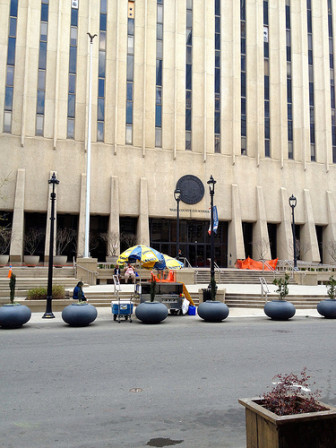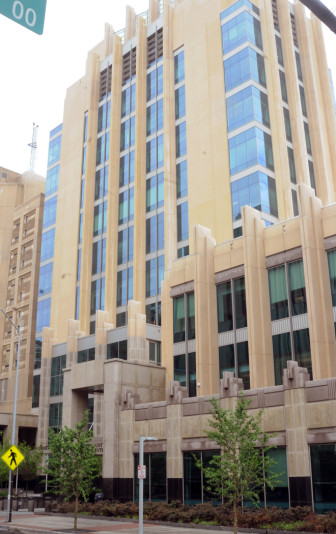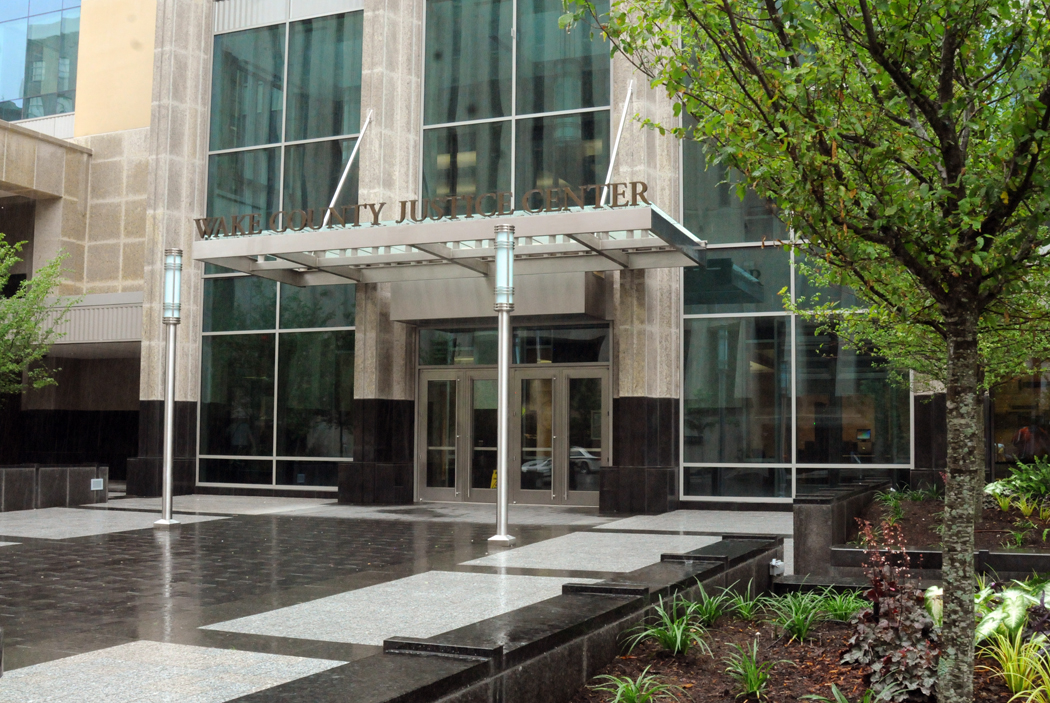There are 17 judgeship positions up for election in November, ranging from district court to the court of appeals. Of those, only the four Supreme Court Association Justice seats will appear on the ballot during the May 6 primary.
Judges run for office, but unless you’re breaking the law or being sued, it’s unlikely that you’ll come into contact with one. So what do these men and women do? What are they responsible for? We’re here to shed a little light on the subject.
The Judicial System 101
If you are going to appear before a judge, it’s most likely that you will do so in front of a district court judge.
District court, “has a lot of power when you look at how it effects everyday citizens,” said professor Brian Boyd, who teaches criminal law and procedure, and trial advocacy at Campbell Law School in Raleigh.
District court is the lower-level court, and deals with myriad cases from speeding tickets to misdemeanor offenses, infractions, and domestic violence issues.

Heart Trek USA
Wake County Courthouse
The most prominent cases are domestic violence, driving while intoxicated and driving infractions.
On the civil side, district court deals with cases such as divorce proceedings and lawsuits involving less than $25,000.
Originally, Boyd siad, district court handled cases that were valued at $10,000 or less, but last year, Gov. Pat McCrory increased that value.
“So that’s a significant increase in jurisdiction for the district court in civil matters,” he said.
District court cases are bench trials, which means there is no jury; the judge decides your fate. Sentences in district court can range from no jail time to 120 days in jail.
Chief District Court Judge Robert Rader said there are about 3 million cases heard in North Carolina every year, with an estimated 2.8 million cases being heard at the district court level. Wake County hears about 180,000 to 200,000 per year, from seat belt infractions to felony breaking and entering.
There are 11 district court seats up for election in November and none of those seats are involved in the May primary.
“If you don’t like what happened in district court, you can appeal to Superior Court,” Boyd said.
It’s the next level of the judicial system.
Superior court hears felonies, misdemeanor appeals and civil cases that involve more than $25,000. Civil cases can also be appealed from district court to superior court. Major crimes, like murder, are always heard in superior court.
Unlike district court, which is only heard by a judge, superior court involves a jury for both civil and criminal cases.
From superior court, cases can be appealed to the North Carolina Court of Appeals. There are 15 judges in the court of appeals, who sit in panels of three and read written arguments and hear oral arguments. Judges make written decisions as a result of those briefs.
The next and final step in the state is the North Carolina Supreme Court, which is made up of seven justices.
Elections and Campaigns
Magistrates, who are below district court judges, are appointed, but district court judges and higher are elected by residents of that particular district.
The state is split into districts, which, depending on size, are sometimes comprised of multiple counties. Wake County is large enough to be a single-county district, District 10. There are 19 district court judges, who serve staggered four-year terms. Eight seats are up for election during the presidential years and the remaining 11 are held on the off year.
Judges run at large, meaning the entire county elects each judge.
Judgeship races tend to be relatively quiet because they are technically nonpartisan and candidates are somewhat restricted on campaigning.

Karen Tam / Raleigh Public Record
The new Justice Center Building.
Despite being a nonpartisan race, Boyd said the reality is that you can find out if a judge is a member of a particular party. Political parties will work hard to get their particular candidate elected, even if the candidate isn’t officially campaigning alongside the party. Historically speaking, Boyd said, North Carolina judges have always been fairly conservative with their rulings.
“I’m a firm believer that party politics should not interfere in the judicial races,” Rader said, adding that party labels do serve a purpose, but not in these races. “They are not predictor of how a person is going to perform as a judge.”
Unlike traditional political candidates, like those running for county commissions or city councils, candidates for judgeships don’t take stances on partisan issues or make campaign promises. The only campaign promise that candidates make, Rader said, is to be fair and impartial in their work.
The Ideal Candidate
Rader said most attorneys aspire to be a judge because they feel like they can make a difference.
“It’s not for the money, I’ll tell you that,” he said with a laugh. As the chief district court judge, Rader makes about $114,000 a year. A starting attorney at a big firm, he said, would make a comparable salary.
“They like handling cases at this level because they have a commitment to public service,” he said.
Rader said very few people leave the bench after a short period.
While the ideal judge would have spent time practicing law, “The reality is all you need is a law degree and a law license in this state and you can be a judge,” Boyd said.
The average person is likely to appear before district court judges for anything from a speeding ticket to battling over child custody, which is why, “Who those people are and how they rule, are maybe going to affect us more than supreme court justices,” Boyd said.
While the qualities people seek in a judge are individual and subjective, Boyd said in his opinion an ideal candidate would have extensive experience with the various courts. Administrative experience is also key because much of a judge’s job is running the court and keeping things running smoothly.
“I think someone who has a good temperament, too,” Boyd said.
Judges deal with a vast array of people, some of whom are not prepared or do not understand how the court process works.
For voters who are wondering how to make the best decision, Boyd said his advice is, “Go talk to a lawyer.”
